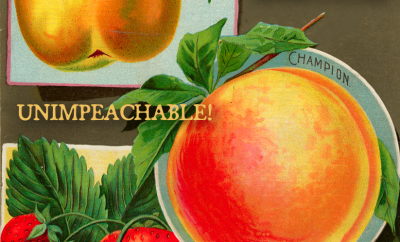 Image courtesy of [Will Clayton via Flickr]
Image courtesy of [Will Clayton via Flickr]
IP & Copyright
Sing Away: Judge Rules “Happy Birthday” Lyrics No Longer Copyrighted
The “Happy Birthday” song has become a ubiquitous part of American life. But, it’s also a song that has a long history of legal copyright strife. However, thanks a recent ruling by a federal judge, the song has been set free–the “Happy Birthday” lyrics are no longer copyrighted, and will not require royalties to be paid for their use.
The history of the song is as long as it is complicated. It was written in Kentucky by two sisters, Mildred and Patty Hill, in 1893. The song has since evolved from the sisters’ original lyrics, but they’re credited with its inception. The song was copyrighted in 1935, by the Clayton F. Summy Co., which was succeeded by a company called the Birch Tree Group. Then, Warner/Chappell purchased the Birch Tree Group in 1988, inheriting the copyright to a song which at that point was almost a century old.
Warner/Chappell has collected royalties on the use of the song anytime it’s used “as part of a profit-making enterprise.” This can include TV shows, movies, or commercials. But Warner/Chappell has also gone after incidences that aren’t expressly for profit, like if a restaurant wants to sing the song while giving a customer a free birthday dessert. A desire to avoid paying those royalties inspired the often odd birthday traditions at many restaurants. George Washington University School of Law professor Robert Brauneis explained to ABC News:
If you want to sing it at your home at a birthday party you don’t have to pay anything, because that is a private performance. But if you want to use it in a television show, a movie, or a television commercial, you’ll pay anywhere from $5,000 to $30,000 for those rights.
It’s estimated that Warner/Chappell has collected approximately $2 million in royalties each year from the “Happy Birthday” song.
But, according to U.S. District Judge George H. King, who ruled in a case brought by filmmakers challenging Warner/Chappell’s claim to the song, that copyright claim doesn’t hold. According to King, the issue with Warner/Chappell’s copyright is that there’s no evidence that Summy Co. ever had a legal copyright on the lyrics in the first place. King wrote:
Defendants ask us to find that the Hill sisters eventually gave Summy Co. the rights in the lyrics to exploit and protect, but this assertion has no support in the record. The Hill sisters gave Summy Co. the rights to the melody, and the rights to piano arrangements based on the melody, but never any rights to the lyrics.
So, the issue isn’t completely decided–there will probably be appeals. But for now, “Happy Birthday” appears to be, quite happily, in the public domain.








Comments